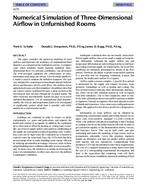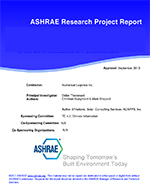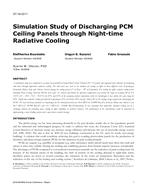Aquifer chilled storage air-conditioning systems have been installed at two sites in Tuscaloosa, Alabama, in a department store and in the Recreation Center on The University of Alabama campus. Both systems provide 150-200 tons of air conditioning. These systems operate by using cold air temperatures to chill groundwater in the wintertime, storing it in an aquifer, and using the cold water in summer for air conditioning. Both systems are installed in unconfined water table aquifers in the upper 80 ft (24.9 m) of surface sediments. The aquifer consists of alluvial gravels and sands associated with the Black Warrior River, which runs through Tuscaloosa. The department store system has been operated for over two years and the university system for one year. Throughout the summer of 1983, the university system air-conditioned the Recreation Center.
Drilling wells in an unconfined aquifer requires a large amount of drilling mud to hold the hole open during the drilling operation. This can cause clogging problems later on during the operation of the system, but routine maintenance can be performed to prevent clogging. The design of the wells is critical to facilitate proper injection during the chilling and air-conditioning cycles. Slot size and gravel pack must be matched to the characteristics of the surrounding formation. It is advisable to use two sand filters or a valving system to pass water both ways through one sand filter to prevent the passage of sand and mud into the injection wells in both the chilling and air-conditioning cycles. A properly designed well system will not produce sand but may produce some fine mud that can cause clogging over an extended period of time.
Citation: Symposium, ASHRAE Transactions, 1984, vol. 90, pt. 2B, Kansas City, MO
Product Details
- Published:
- 1984
- Number of Pages:
- 13
- File Size:
- 1 file , 920 KB
- Product Code(s):
- D-KC-84-03-4


